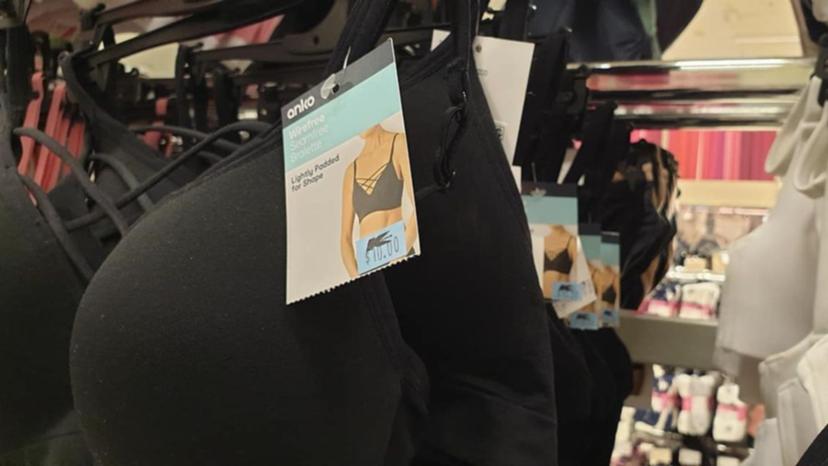Misleading price tags: When do stores have to honour them?
By Nicola Field
Discount retailer Kmart recently copped a serve on social media for covering pre-printed price tags with a sticker displaying a higher price.
Not surprisingly, a few shoppers admitted to peeling off the sticker to score the cheaper price at the check-out.
But who was in the right? And how can you pick dodgy pricing tactics?
The price is right! But which one?
While businesses are free to set prices as they see fit, there are strict laws about the way prices should be displayed.
Consumer watchdog, the ACCC, says prices must be clear, accurate and not misleading to consumers.
Fair Trading NSW notes that when an item is marked with two prices it is illegal for the retailer to charge the higher price.
The exception, according to the ACCC, is when one price is entirely hidden by another.
So as long as a higher-priced sticker completely blocks out a lower price, the retailer is technically in the right.

Do businesses need to warn consumers about a price hike?
Not unless you're buying products or services through a subscription, in which case the provider needs to alert you to a price hike before a bigger bill lands in your lap.
Can I score a freebie for pricing mistakes at the supermarket?
Occasionally an item may scan at the supermarket check-out for more than the shelf price.
This entitles you to a freebie, right?
Not necessarily.
Some supermarkets have signed up to the voluntary Scanning Code of Practice, which says if an item scans for more than the shelf price, you're entitled to receive the product free of charge.
But you can't double dip.
If you buy several identical items, only the first incorrectly scanned item is a freebie. The rest should be sold for the lower price.
There are exclusions to this code. Items priced over $50 for example, aren't covered.
Not all stores have signed up to the code. Independent supermarkets may have their own policies around pricing glitches.
Of course the sting in the tail is that it's up to eagle-eyed shoppers to spot an incorrect price at the register.
What about inflated discounts?
Ever wondered if sales discounts along the lines of 'Was $500/now $250!' have to be genuine?
The answer is yes.
Under Australian consumer law, falsely beefing up the 'before' price is illegal.
The original price must have applied for a reasonable time prior to the sale, though what's 'reasonable' can vary between retailers.
As a guide, one jewellery store copped a $250,000 fine for advertising a 'before' price that hadn't applied for four months prior to a sale.
Can stores cancel a sale if there's a pricing error?
If a price seems too good to be true, it could be that a mistake has been made.
If a pricing error is genuine, a retailer may be able to back out of a sale particularly if no money has changed hands.
The situation can be very different if you've paid for a purchase.
In 2016, a custom jeweller was forced to sell a $34,000 diamond ring for a song, when a customer ordered and paid for the ring in full via the jeweller's website - paying the advertised price of just $1100.
While the jeweller claimed the ring was obviously incorrectly priced, the NSW Civil and Administrative Tribunal didn't buy the argument, and the consumer walked away with the deal of the century.
Can I be charged more than I agreed to pay?
Quite possibly. And right now, this is a real risk facing new car buyers.
Supply chain issues are playing havoc with delivery times on new vehicles.
The Price My Car website says the average wait time on a new car is currently 157 days.
For best-sellers such as the Toyota Rav 4, the wait can blow out to 339 days.
Thanks to soaring inflation, by the time your car arrives it may come with a higher price tag.
Toyota for instance, warns on its website that extended wait times "may result in a different price point at the time of delivery".
This can leave buyers scrambling to fund a higher cost - especially those who signed a sale contract with a clause that allows the dealer to pass on a price hike.
The motto of the story is to read the contract very carefully.
Where do I go if I have a pricing problem?
Your first port of call for pricing queries is always the business involved. If you get no joy, contact the ACCC on 1300 302 502 or the Consumer Affairs/Department of Fair Trading in your state/territory.
Get stories like this in our newsletters.



